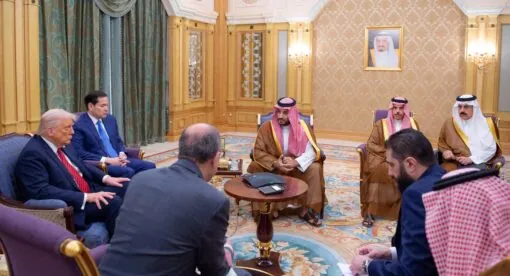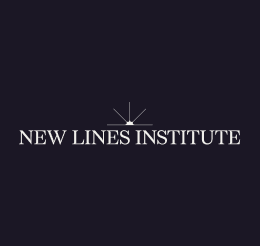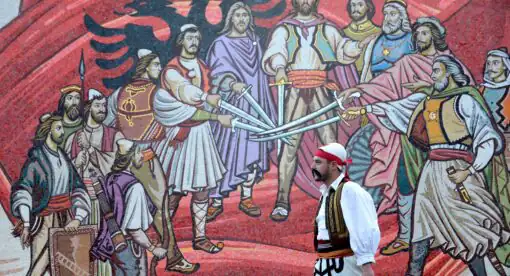Uzbekistan, the heart of the geopolitically strategic region of Central Asia, is in the midst of subtle yet profound changes on both the domestic and foreign policy fronts. These changes, sparked by the death of long-serving leader Islam Karimov and the rise of current President Shavkat Mirziyoyev, have enabled the country to pursue economic reforms, improve relations with other Central Asian countries, and strengthen economic and security ties with major powers like Russia and China. Uzbekistan’s opening also presents unique opportunities for the United States, particularly as the competition between Moscow and Beijing in Central Asia is likely to intensify.
Transformation in Tashkent
Uzbekistan underwent a monumental political shift when Karimov suffered a fatal brain aneurysm in late 2016. Under Karimov’s nearly 30-year rule, Uzbekistan was largely closed to the outside world, mostly due to the turbulence of the post-Soviet period. Those years brought the economic and political dislocations of the Soviet collapse and fierce opposition from Islamist groups like the Islamic Movement of Uzbekistan that threatened the government prior to the U.S. intervention in Afghanistan in Oct 2001. Political instability and conflicts in neighboring Kyrgyzstan and Tajikistan also led Karimov to rule with an iron fist, cracking down on religious groups and political opposition at home while limiting relations with external powers in order to maintain neutrality and prevent excessive foreign influence in the country. In essence, Karimov continued Soviet-era policies while avoiding political and economic reforms.
Following Karimov’s death, the presidency fell to Mirziyoyev, his longtime prime minister and political ally. Mirziyoyev was careful to honor Karimov’s legacy as the first and only leader of modern Uzbekistan and to maintain continuity in the early phase of the succession process. While establishing his presidency, Mirziyoyev maneuvered carefully regarding Uzbekistan’s powerful and conservative security services, who served as the backbone of Karimov’s rule. Mirziyoyev also preserved Uzbekistan’s neutrality and isolationism in order to minimize political instability amid the succession process.
Once he was able to fully consolidate power, however, Mirziyoyev embarked on an ambitious reform process that has eased Uzbekistan out of alienation and into cooperation. Uzbekistan can now reclaim its status as Central Asia’s most strategic country, given its large population, abundant natural resources, and central location bordering on all other Central Asian countries as well as Afghanistan.
Reaping the Benefits of Reform
On the domestic front, Mirziyoyev liberalized foreign currency convertibility to converge the official exchange rate with the black market and open banking services to the country’s citizens, vastly improving the domestic business climate. Mirziyoyev also pursued visa liberalization for nearly 100 countries, greatly facilitating travel into the country in a bid to increase tourism and encourage outside investment. Years of restrictions and isolation under Karimov created a need for Uzbekistan to jumpstart its economy. Mirziyoyev’s reforms are meant to meet that need.
Mirziyoyev’s reforms did not stop at home. He sought to end Karimov’s policy of isolationism, which had led to frequent tensions and antagonism with neighboring countries – particularly Kyrgyzstan and Tajikistan, with whom Uzbekistan shares the strategic Fergana Valley, the demographic and agricultural heartland of Central Asia. Uzbekistan periodically clashed with these countries over issues like poorly demarcated borders and water rights. Mirziyoyev sought to improve relations by settling border disputes and working more collaboratively regarding water resources. The result has been several landmark border and resource cooperation agreements in recent years, which in turn have translated into greater regional stability and a growth of region-wide trade of over 25 percent in just the past year alone.
Mirziyoyev has also sought to open up the country to major powers. Under Karimov, Uzbekistan kept economic and security cooperation with Russia to a minimum. Unlike his counterparts in Kazakhstan and Kyrgyzstan, Karimov chose to forego membership in Moscow-led blocs like the Collective Security Treaty Organization and Eurasian Economic Union out of his fear of excessive foreign influence. During Karimov’s rule, Tashkent was especially hesitant to work with the United States out of concern about the West’s efforts to promote democracy and fears of a “color revolution” emerging in Uzbekistan. Uzbekistan initially allowed the United States to use an airbase in Qarshi for NATO operations in Afghanistan following the 9/11 attacks. However, Tashkent expelled U.S. forces from the airbase in 2005 after Washington criticized Tashkent for human rights abuses during the Andijan massacre.
Mirziyoyev has reversed Karimov’s isolationism, signing large-scale economic deals with Moscow and resuming joint bilateral military exercises with the Russians after more than a decade. Uzbekistan has also strengthened economic ties with China as Beijing’s Belt and Road Initiative has become increasingly important in Central Asia. Uzbekistan and China are also engaging in more counterterrorism cooperation. Tashkent is even considering stronger economic and security ties with Washington, though more limited than its ties with Russia and China.
Where To From Here?
The question now is how far Uzbekistan can open. The changes in Uzbekistan present new and unique challenges for the country. While the local population largely supports the government’s economic reform plan, many Uzbeks are more cautious about strengthening ties with countries like Russia and China. Perhaps the most important challenge concerns Tashkent’s balancing act between Russia and China.
Moscow and Beijing have established a sort of division of labor in Central Asia: Russia serves as the primary political/security power in the region, while China focuses on economics. Yet as China ramps up its economic presence in the region and as Russia seeks to pull Uzbekistan further under its influence, this understanding could be upset. Indeed, Russia has already built on Uzbekistan’s gradual opening by more fervently pursuing Tashkent’s membership in the Eurasian Economic Union. This has made many officials in Uzbekistan nervous, given the bloc’s exclusive nature and Tashkent’s desire to maintain a “multi-vector” foreign policy.
Meanwhile China’s growing economic presence in Uzbekistan is likely to contribute to more security involvement in the country. This is the case in Kyrgyzstan, where China has stepped up its counterterrorism activities following the bombing of the Chinese embassy in Bishkek, and in Tajikistan, where China has established a military presence near the border of Afghanistan’s Wakhan corridor. Regardless of China’s desire to maintain a good working relationship with Russia, Beijing’s sheer economic reach and accompanying security interests could throw this relationship off balance.
As competition ramps up between Russia and China over Uzbekistan, the United States could have an opening. Human rights and democracy will continue to present challenges for Washington’s outreach to Uzbekistan (with domestic political reforms likely to come much more slowly than their economic counterparts). However, the Uzbek government’s pursuit of reforms and a gradual opening indicate that Tashkent is willing to be more pragmatic in its behavior regarding economic and security cooperation with major powers.
Given Uzbekistan’s desire to pursue a diversified foreign policy in order to expand its options and limit its reliance on any one power, the United States is uniquely positioned to take advantage of Uzbekistan’s opening. In particular, Washington could become a more active trade and investment partner as the Uzbek economy undergoes further reforms, while providing Tashkent with counterterrorism and security assistance that is seen as less overbearing and potentially threatening than assistance from the larger powers in Uzbekistan’s neighborhood. Such cooperation would be mutually beneficial to Washington and Tashkent; Uzbekistan could build on its economic opening and preserve a balanced foreign policy, and the United States would gain an advantage over Russia and China in the increasingly vital and contested region of Central Asia.
Eugene Chausovsky is a Nonresident Fellow with the Newlines Institute. Previously, he served as Senior Eurasia Analyst at Stratfor for 10 years. His work focuses on political, economic, and security issues pertaining to the former Soviet Union, Europe, and Latin America. He Tweets at @EugeneChausovsk.
The views expressed in this article are those of the author and not an official policy or position of the Newlines Institute.






